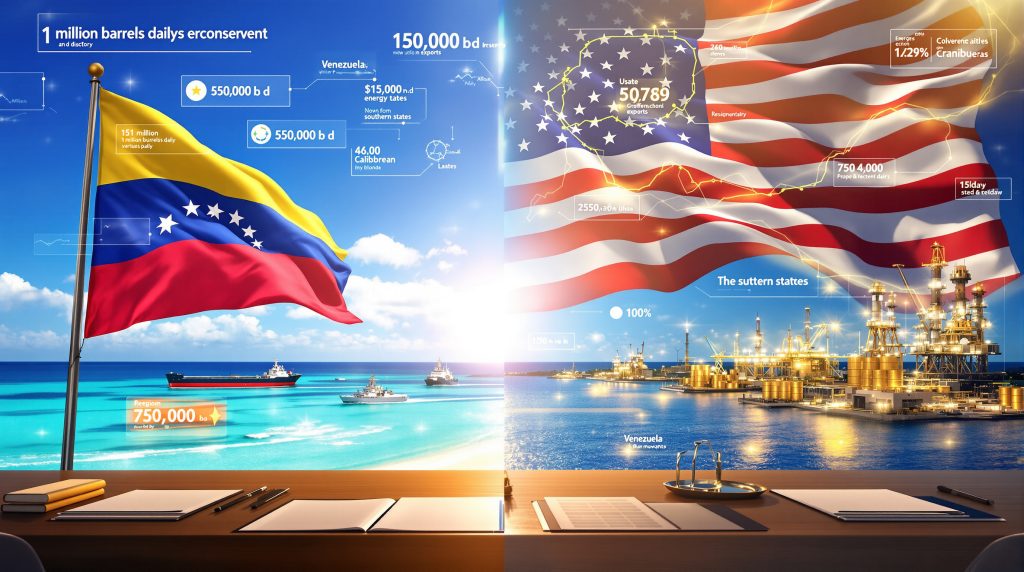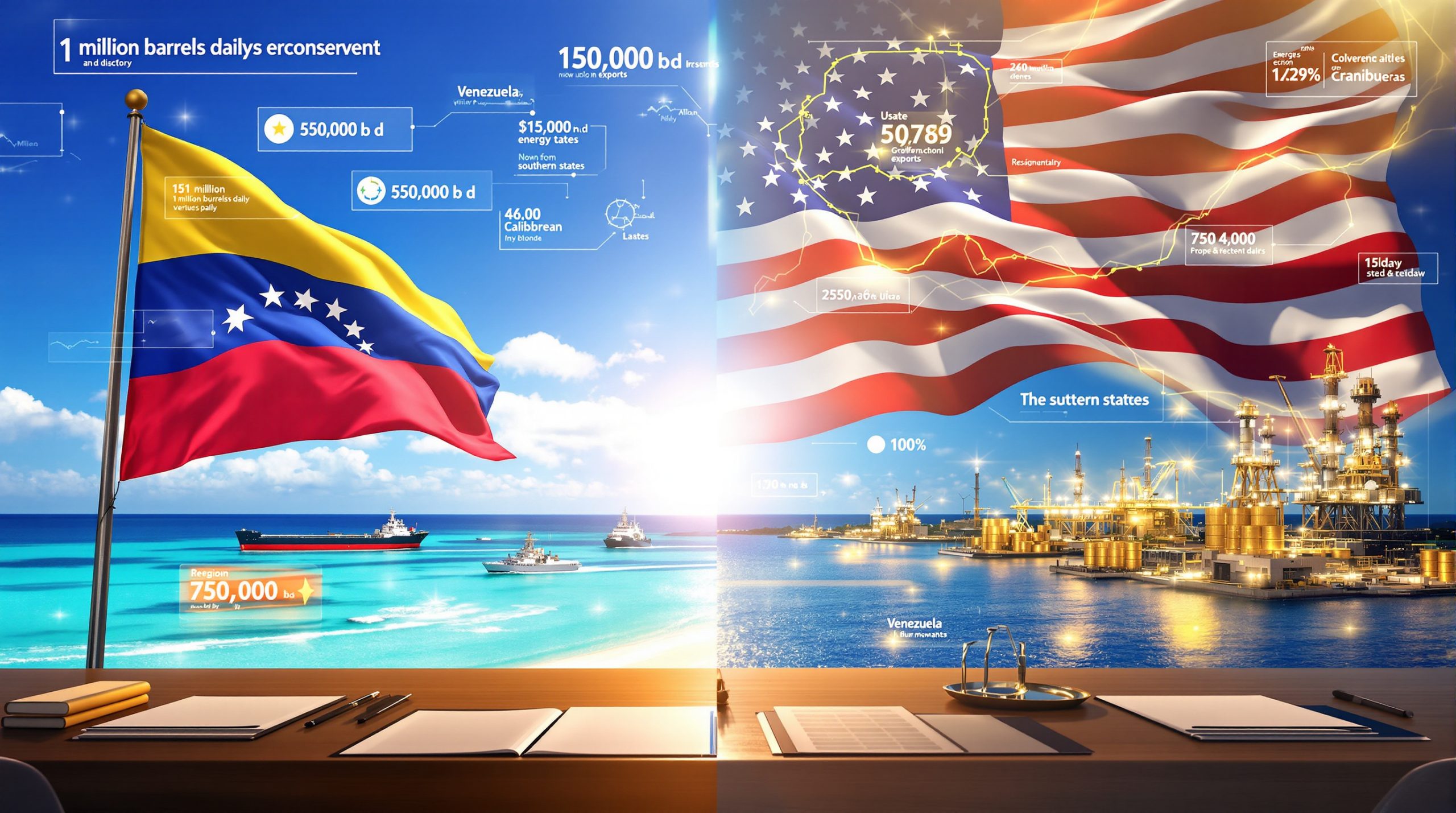Regional energy market dynamics create complex interdependencies that often override immediate political tensions between major producing and consuming nations. The Caribbean basin represents a critical nexus where diplomatic calculations, military positioning, and economic interests converge to shape hemispheric stability patterns. As venezuela maduro seeks talks with us, these interconnected factors play a crucial role in shaping bilateral relations.
Heavy crude supply chains require specialised infrastructure investments that span decades, creating structural relationships that persist through political volatility. When approximately 10% of naval fleet capacity concentrates in a single regional theatre while energy trade flows continue uninterrupted, it demonstrates how strategic resource management transcends conventional diplomatic frameworks.
Strategic Timing Behind Current Diplomatic Overtures
The convergence of multiple pressure points in late 2025 has created unique conditions for bilateral engagement between Caracas and Washington. Venezuelan President Nicolás Maduro's public statement that "whoever in the US wants to talk with Venezuela, we'll talk" came after President Donald Trump indicated willingness for dialogue on November 18, 2025, according to Reuters reporting.
This diplomatic opening occurs against a backdrop of heightened military activity, with the United States deploying approximately 10% of its total naval capacity to the Caribbean region in recent weeks, conducting at least 20 interdiction operations targeting vessels allegedly involved in narcotics trafficking.
Key Strategic Factors Driving Engagement:
- Energy Market Pressures: Global heavy crude demand requiring specialised refinery infrastructure
- Regional Security Concerns: Maritime interdiction operations affecting broader Caribbean stability
- Immigration Policy Enforcement: Cross-border movement patterns requiring coordinated responses
- Economic Leverage Considerations: Mutual dependencies in energy sector relationships
Despite significant military presence and enforcement activities, actions had not deterred crude shipments from Venezuela, indicating that economic incentives continue to influence bilateral trade patterns even during periods of heightened tension. Furthermore, this situation illustrates how global oil market influence continues to shape diplomatic relations.
The timing also coincides with Secretary of State Marco Rubio's announcement of intentions to designate Venezuelan officials within foreign terrorist organisation frameworks, creating a complex policy environment that permits selective cooperation whilst maintaining broader political opposition.
Energy Sector Interdependencies Override Political Obstacles
Venezuelan crude production maintains steady output levels around 1 million barrels per day, with approximately 150,000 barrels daily exported to United States markets during October 2025. This represents a significant portion of heavy crude supplies essential for specialised US Gulf Coast refining operations. However, the OPEC oil production impact remains a crucial factor in determining global supply patterns.
Current Production and Trade Metrics:
| Production Category | Volume (b/d) | Market Destination |
|---|---|---|
| Total Venezuelan Output | ~1,000,000 | Global markets |
| US-bound Exports | ~150,000 | American refineries |
| Previous Chevron Volumes | ~400,000 | US market (earlier 2025) |
Chevron's operational continuity demonstrates the compartmentalised nature of current policy frameworks. The company resumed crude exports to US markets in August 2025 following the Trump administration's reinstatement of a modified sanctions waiver, enabling continued energy cooperation despite broader diplomatic tensions.
Merey Crude Export Patterns
The predominant Venezuelan crude grade exported to American markets, Merey heavy crude, requires specialised refinery infrastructure that creates mutual economic dependencies. However, ship tracking data from Kpler indicates no new Merey shipments were scheduled for the United States during the week of November 18, 2025, whilst Venezuelan exports to China continued uninterrupted.
Market sources indicated that demand patterns for heavy crude typically fluctuate in late-year periods as "US refiners work to reduce stocks," suggesting seasonal factors rather than purely political considerations influence current export scheduling. Consequently, this demonstrates how oil price movements amid trade wars can influence export patterns.
A Chevron source in Venezuela indicated there appeared to be "no new movements for now to the US, although Venezuela's exports to China continue," demonstrating deliberate portfolio management during the diplomatic period.
Military Deployment Impact on Negotiation Dynamics
The substantial naval presence in the Caribbean represents more than routine enforcement activity. With approximately 10% of total US Navy fleet capacity concentrated in the region, this deployment level creates significant regional security presence affecting maritime commerce and diplomatic calculations across multiple dimensions.
Military Operations Assessment:
- Operational Scale: At least 20 interdiction operations conducted
- Target Classification: Vessels "alleged to be ferrying drugs to US"
- Geographic Scope: Caribbean-wide naval presence
- Duration: Recent weeks preceding November 18, 2025
Despite intensive maritime enforcement activities, Venezuelan crude shipments to US markets continued, suggesting that energy sector relationships maintain functionality even during periods of heightened security operations. This demonstrates the resilience of heavy crude supply chains that serve specialised refinery requirements.
Strategic Signalling Through Mixed Messaging
The concurrent maintenance of diplomatic dialogue whilst conducting extensive military operations represents complex policy communication. Rather than escalation or de-escalation, this approach suggests negotiations occur within high-pressure security contexts that serve as leverage mechanisms rather than diplomatic closure tools. In addition, the Trump tariff market impact adds another layer of complexity to these negotiations.
The persistence of energy trade flows during intensive interdiction operations indicates that economic incentives for specialised crude supply relationships override immediate security deterrence effects.
Regional maritime security concerns require coordinated responses that benefit from functional communication channels, even when broader political relationships remain strained. The Caribbean's role as a critical shipping corridor for multiple nations creates incentives for stability that transcend bilateral tensions.
Sanctions Framework Evolution and Diplomatic Space
The current sanctions architecture demonstrates sophisticated compartmentalisation that permits sector-specific cooperation whilst maintaining broader political objectives. The August 2025 reinstatement of Chevron's modified sanctions waiver created operational space for energy cooperation despite simultaneous pursuit of foreign terrorist organisation designations against Venezuelan officials.
Policy Timeline and Framework Changes:
| Date | Policy Action | Operational Impact |
|---|---|---|
| August 2025 | Modified sanctions waiver reinstated | Chevron export resumption |
| November 18, 2025 | FTO designation announcement | Enhanced legal restrictions |
| Ongoing | Diplomatic dialogue openings | Conditional engagement framework |
This dual-track approach creates precedent for functional economic relationships that transcend political non-recognition. The modified waiver structure permits energy sector engagement whilst maintaining sanctions pressure on other economic sectors, demonstrating policy flexibility that could expand under successful diplomatic engagement.
Legal and Operational Complexities
Foreign terrorist organisation designation creates significant legal implications for international financial transactions, travel, and business operations. However, the announcement of designation intentions concurrent with diplomatic overtures suggests strategic use of legal frameworks as negotiation leverage rather than relationship termination mechanisms.
The continued operation of American energy companies under modified waivers whilst Venezuelan officials face potential FTO designation illustrates the compartmentalised nature of current policy frameworks. This approach permits essential economic cooperation whilst maintaining broader foreign policy objectives.
Regional Stability Implications
Diplomatic engagement between these major hemispheric powers affects broader inter-American relationship patterns, particularly regarding migration policy coordination, security cooperation, and multilateral engagement frameworks. The Organisation of American States and other regional institutions monitor bilateral developments for implications on hemispheric cooperation structures.
Caribbean Maritime Security Considerations
The concentration of 10% of US naval capacity in Caribbean waters affects regional commerce patterns beyond bilateral Venezuela-US relationships. Other Caribbean nations, shipping companies, and regional economic partnerships must adapt to heightened security environments that influence trade route planning and operational costs.
Regional stability benefits from predictable bilateral communication channels, particularly for addressing shared challenges like:
- Cross-border migration management
- Counter-narcotics coordination
- Maritime security cooperation
- Trade relationship development
Hemispheric Diplomatic Ripple Effects
Successful bilateral engagement could influence other regional relationship patterns, particularly regarding countries that maintain relationships with both the United States and Venezuela. Brazil, Colombia, and other regional powers often serve mediating roles that benefit from reduced bilateral tensions.
The energy sector's continued functionality during political tensions provides a model for pragmatic cooperation that serves mutual interests whilst managing broader disagreements. This approach could extend to other areas of potential cooperation if diplomatic engagement proves successful.
Historical Context and Precedent Patterns
Previous cycles of tension and dialogue in US-Venezuela relations demonstrate recurring patterns where economic factors, particularly energy relationships, serve as catalysts for renewed communication. Heavy crude supply dependencies have provided continuity through multiple diplomatic disruptions over the past two decades. For instance, the oil price rally implications have historically influenced diplomatic calculations.
Energy Sector Resilience Through Political Cycles
The specialised nature of Venezuelan heavy crude and US Gulf Coast refinery infrastructure creates structural interdependencies that persist through political volatility. Refinery investments designed for specific crude grades require long-term supply relationships that transcend immediate political disagreements.
Previous diplomatic openings have often coincided with global energy market pressures that emphasise the mutual benefits of functional bilateral energy relationships. Current market conditions, including global heavy crude supply considerations, create similar incentive structures for pragmatic cooperation.
Market Psychology and Investment Climate Assessment
The continuation of energy sector operations during diplomatic tensions reflects sophisticated risk assessment frameworks employed by international energy companies. Chevron's maintained operational presence demonstrates that modified sanctions relief structures provide sufficient legal clarity for continued investment and operations.
Investment Risk Considerations:
- Regulatory clarity through modified waiver structures
- Specialised infrastructure investments requiring long-term relationships
- Heavy crude supply chain dependencies
- Compartmentalised policy frameworks permitting sector-specific cooperation
Market participants distinguish between immediate political volatility and long-term structural relationships that serve mutual economic interests. The persistence of approximately 150,000 barrels per day of Venezuelan exports to US markets during periods of heightened tension demonstrates this risk assessment approach.
Forward-Looking Market Dynamics
Successful diplomatic engagement could enhance regulatory clarity and reduce operational risks for international energy companies operating in Venezuela. Improved bilateral relationships might expand sanctions relief beyond current energy sector focus to include broader economic cooperation opportunities.
However, the bifurcated nature of Venezuelan export relationships, with continued flows to China alongside US exports, indicates diversified market strategies that reduce dependence on any single export destination.
What Could Diplomatic Outcomes Mean for Regional Stability?
The current diplomatic opening represents convergence of strategic, economic, and regional factors creating opportunities for constructive engagement. Success depends on both nations' ability to compartmentalise specific cooperation areas whilst managing broader political differences. As CNN reported, there are significant implications for venezuela maduro seeks talks with us initiatives.
Short-term Diplomatic Objectives
Immediate success could address specific bilateral issues whilst establishing communication channels for broader regional challenges. Energy sector cooperation provides a proven framework for functional relationships that transcend political disagreements.
Long-term Strategic Considerations
Sustained engagement might contribute to hemispheric stability through reduced military tensions and enhanced cooperation on shared challenges. The Caribbean maritime security environment could benefit from improved bilateral communication, particularly regarding counter-narcotics operations and regional commerce protection.
Energy sector interdependencies demonstrate the potential for pragmatic cooperation that serves mutual interests whilst managing broader political differences.
Global energy market dynamics create external pressures encouraging both nations to maintain functional relationships regardless of immediate political tensions. Heavy crude supply chain requirements necessitate long-term planning that benefits from stable bilateral frameworks and predictable regulatory environments.
The diplomatic pathway forward requires balancing immediate political considerations with long-term strategic interests. Regional stability, energy security, and economic cooperation provide concrete areas for potential progress that could establish foundations for broader diplomatic engagement.
Disclaimer: This analysis involves speculation about diplomatic outcomes and policy developments that remain uncertain. Readers should consider multiple scenarios and consult additional sources when making investment or strategic decisions related to Venezuela-US diplomatic relations and energy market developments.
Looking to Capitalise on Energy Market Volatility?
Discovery Alert's proprietary Discovery IQ model delivers real-time alerts on significant ASX mineral discoveries, instantly empowering subscribers to identify actionable opportunities ahead of the broader market. Begin your 30-day free trial today and secure your market-leading advantage whilst global energy dynamics continue reshaping investment landscapes.




